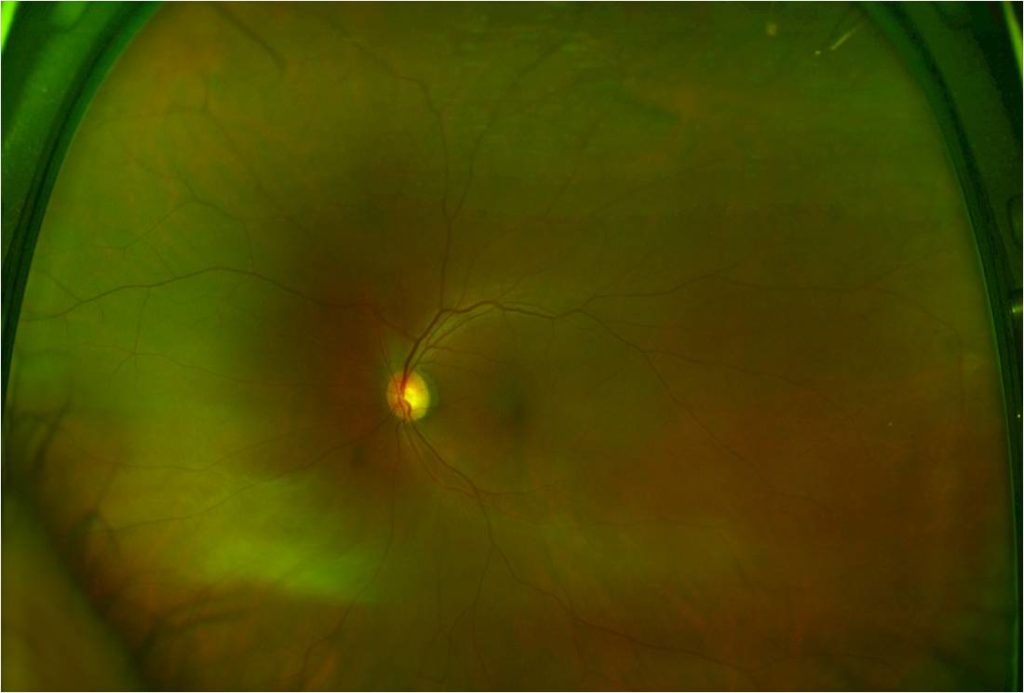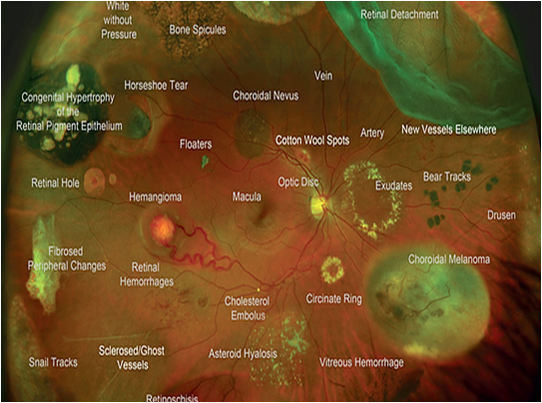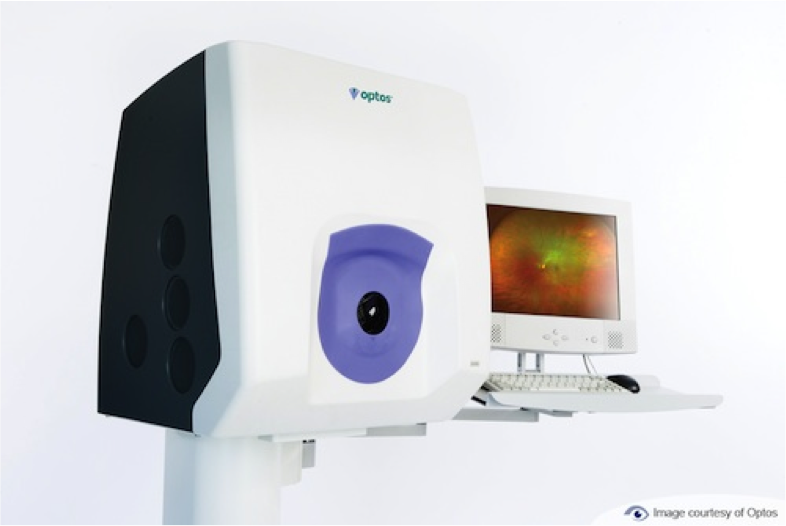The retina is the delicate tissue that lines the back of your eye. When light strikes the retina, an image is produced that is sent as an electrical signal to the brain, enabling you to see.
What can happen to the retina?
Your retina is the only place in the body where blood vessels can be seen directly. This means that signs of diabetes, high blood pressure, high cholesterol, stroke, and other diseases can be seen in the retina. Early detection is essential so that treatment can be initiated in a timely fashion.

NORMAL OPTOMAP

OPTOMAP WITH OCULAR DISEASES
Diabetic Retinopathy (DR)
Diabetes affects the eyes and the kidneys and is a leading cause of blindness. Retinopathy occurs when diabetes damages the tiny blood vessels inside the retina.
Age-Related Macular Degeneration (AMD)
The center of the retina (the macula) can become diseased as we get older. This results in alterations to our fine central vision making daily activities such as driving difficult.
Glaucoma
Glaucoma causes damage to the optic nerve and almost always develops without symptoms.
How does Optomap help?
Optomap ultra-wide digital retinal imaging system captures more than 80 % of your retina in one panoramic image. Traditional methods typically reveal only 10-15% of your retina at one time.Seeing most of the retina at once allows your eye doctor more time to review your images and educate you about your overall eye health. This leads to early detection and better care. Numerous clinical studies have demonstrated the power of optomap as a diagnostic tool.
How often should I have an Optomap?
You should have an Optomap every time you have an eye exam (at least once a year). This will ensure that you have a digital record of your retinal health so that any change can be compared over time. Many vision problems begin at a early age, so it is important for children to receive proper eye care from the time they are infants.
Will I need to be dilated and does it hurt?
An Optomap takes only seconds to perform, is not painful, and typically does not require dilation. However, your eye doctor may decide dilation is still needed.
Call our office today to schedule your comprehensive eye exam including the Optomap Retinal Exam.




